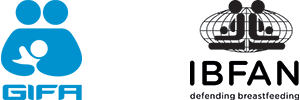
Infant and children mortality is still a major concern globally. Breastfeeding has proven to be one of the most effective, low-cost interventions to save children’s lives. In order to protect breastfeeding, in 1981, the World Health Assembly (WHA) adopted the International Code of Marketing of Breastmilk Substitutes (the Code), to date completed and extended by fifteen subsequent relevant WHA resolutions. The Code aims to ensure that parents can make fully informed decisions about infant and young child feeding by banning marketing practices that undermine breastfeeding. In 1989, the Convention on the Rights of the Child (CRC) has enshrined breastfeeding protection, promotion and support in its article 24, which articulates the right of the child to the enjoyment of the ‘highest attainable standard of health’. The CRC General Comment No. 15 (2013), which interprets this right, specifies that besides States’ obligation to implement and enforce the Code (para 44), baby food companies have the direct obligation to comply with it in all contexts (para 81). The CRC General Comment No. 16 (2013) on State obligations regarding the impact of the business sector on children’s rights also urges States to implement and enforce the Code (para 57).
However, since 1981, only 35 countries have fully implemented the Code. In absence of effective marketing regulation, and notwithstanding their obligation under human rights law, baby food companies are systematically violating the Code provisions by malevolent marketing practices and tactics that mislead consumers and health professionals. The latest monitoring report Breaking the Rules 2014 published by the IBFAN’s International Code Documentation Centre covers 27 companies and reports 813 violations in 81 countries. It reminds the world that breastfeeding rates will continue to decline with the inevitable consequence of increased mortality and morbidity in infants and young children as long as corporate strategies that violate the Code continue. At present, there is no effective global mechanism that would ensure accountability of baby food companies which all seem prone to evade their human rights obligations in the absence of an effective sanction mechanism. The minority of countries that have been successful and adopted adequate laws to regulate marketing of breastmilk substitutes face serious challenges. The baby food companies, using their political influence and economic power, directly opposed the domestic law (e.g. in India) or resisted the adoption of enforcement mechanisms (e.g. in the Philippines).
In order to meet their obligation to protect breastfeeding and thus, fulfil the right of the child to health, we urge all States Parties to fully implement, monitor and enforce the Code and its subsequent relevant WHA resolutions. Effective sanction mechanisms should be set up and violators should be firmly prosecuted.
